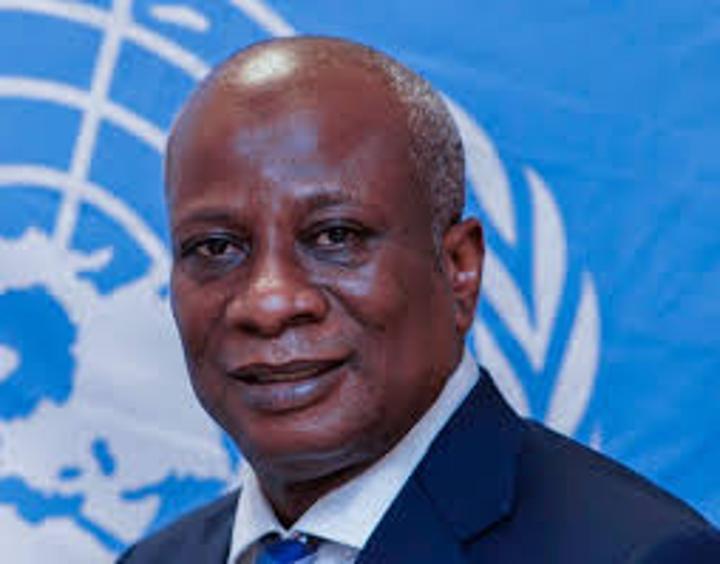Africa-Press – Zimbabwe. THE United Nations resident and humanitarian coordinator in Zimbabwe, Edward Kallon, has called on the government to plug illicit financial flows (IFFs) as billion dollars are reportedly lost to money laundering.
The IFFs continue to pose significant challenges to Zimbabwe’s economy, with recent reports highlighting substantial losses and systemic vulnerabilities.
According to the Financial Intelligence Unit (FIU), Zimbabwe has lost approximately US$6,15 billion to money laundering-related activities over the past five years, averaging US$1,23 billion annually.
These losses represent about 3,4% of the country’s gross domestic product while key contributors include smuggling (US$920 million), illegal gold and precious stones trade (US$880 million), corruption (US$730 million), fraud (US$500 million), tax evasion (US$300 million) and drug trafficking (US$170 million).
The Reserve Bank of Zimbabwe has also identified the real estate and motor vehicle dealership sectors as major conduits for illicit transactions.
The sectors are characterised by cash-dominated dealings and weak anti-money laundering controls, making them susceptible to money laundering and tax evasion.
Speaking at the Post-Fourth International Conference on Financing for Development held in Harare recently, Kallon said the government should work on strengthening tax systems and fiscal governance in a bid to generate sustainable revenue.
“Implementing progressive taxation, reducing illicit financial flows and expanding the formalisation of the informal economy through incentives can generate domestic funds vital for development,” he said.
Kallon said the global landscape had changed with Official Development Assistance (ODA), once a cornerstone of support for countries like Zimbabwe, declining in absolute value and as a share of national and international budgets.
This trend risks leaving many vulnerable populations behind, he said.
Kallon said global debt levels among developing nations had surged and access to affordable finance had become elusive.
“Zimbabwe’s economic challenges, debt and arrears burden, currency instability, unilateral coercive measures, limited investor confidence and recurrent climate shocks are emblematic of these broader issues,” he said.
Kallon said reducing rent-seeking behaviour and improving fiscal governance would ensure tax revenues are effectively used for development.
“This also requires enhancing international cooperation and supporting civil society efforts to expose tax evasion and corruption,” he said.
Kallon reiterated the need to strengthen financial institutions and regulatory frameworks to enable a transparent system that results in more effective utilisation of resources.
“Central to these efforts is the adoption and implementation of sustainable policies that promote social inclusion through a devolution governance approach and environmental sustainability, building resilient economies and communities.
“Zimbabwe can also advocate at regional and global forums for reforms that increase representation and voice for developing countries in multilateral institutions.
“This includes advancing debt relief initiatives, improving concessional financing terms and ensuring climate finance aligns with national needs.”
He said the government should also strengthen financial institutions, regulatory frameworks, and policy implementation capacity, which enables more effective utilisation of resources.
For More News And Analysis About Zimbabwe Follow Africa-Press






